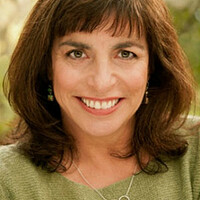Pre-school graduation: Sad symptom of accelerated childhood
Loading...
When Frederick Froebel invented kindergarten, in early 1800s Germany, he pioneered the idea of early childhood education — of reaching children during a period of dramatic brain development and introducing a holistic style of learning through play, music, movement, paperfolding and games. He recognized that children learn differently from one another (the precursor to Multiple Intelligence theory), and that one child may learn best by sorting objects, another by talking with peers, and another through sensory experiences like physical movement and touch. He influenced Maria Montessori, Rudolf Steiner (whose work led to Waldorf Schools), and the Reggio Emilia approach to education, all of which are popular and well regarded today.
Kindergarten, as recently as many of our own childhoods, was a laboratory of discovery and social skills, as well as the preparation for grade school.
Fast-forward 150-plus years since Froebel and we arrive at a time in which online parent message boards are crammed with questions from anxious parents: “Is my child ready for kindergarten?” There are scores of kindergarten readiness tests and commercial kits, which denote and teach precise skills one should know before starting kindergarten, such as the ability to count from 1-10, identify colors, cut with scissors, create rhyming sounds, and skip. (The last includes the especially ridiculous coda that preschool children around the country are being taught to skip, in order to prepare them for kindergarten. Sadly, many children do not have enough outdoor play and free time to develop this skill on their own and are now taught it, not as a joyous life skill, but as part of the readiness curriculum.)
Of course, if a child is not ready for today’s kindergarten, by all means, have the child wait a year. My issue is with the sped-up nature of education. The rush toward school and academic curriculum robs many children of the age-appropriate experience of learning through play, discovery and activity. Given the fact that early childhood has accelerated to the degree that my kindergarten has become my daughter’s pre-K, is it any wonder that the ritual of graduation has also trickled down, from high school and college to pre-school?
I don’t believe I had a preschool or kindergarten graduation. I remember a ritual of autograph books when moving from elementary school to middle. I’m pretty sure there was no middle school graduation either. High school graduation was exceedingly special. I wore a mortarboard cap and gown and screamed with excitement in the school quad, and I actually got to attend a Grad Night at Disneyland that ended at dawn.
Perhaps, then, a blend of personal history and a feeling that childhood has dramatically accelerated leads me to think that elaborate preschool graduations that imitate high school and college graduations are silly (not to mention possibly expensive). Don’t get me wrong: I think it’s wonderful, and even helpful, to have an age-appropriate ritual for young children to help them note the fact of their moving on and perhaps address some conscious or subconscious grief and fear. The trappings of diplomas and caps and gowns do none of those things, however, and are another example of a culture that views children as miniature adults (when convenient). Fortunately, there are some simple rituals that might have more meaning for a child and help them ease and celebrate their transition.
This is a ritual that Anna did at her preschool to mark summer and winter solstices. It can be altered to mark a graduation. Have children stand in a circle and hold hands. An adult leader can then lead children to walk around the circle, or can break free and lead them in a spiral to form smaller circles. The children chant:
We circle around,
We circle around,
We circle around the universe,
Wearing our long tail feathers
As we fly.
I find this a gentle ritual that is symbolic of the movement of time and of change. Because small children make the circle with their bodies, I believe that act has more meaning for them than receiving a piece of paper (that many can’t even read).
Another ritual can be taken from Girl Scouts: The bridging ceremony is typically done when scouts “bridge” from one age-group level to another. They symbolize their passage by walking over a bridge (footbridges work well), under an archway, through a path or over stepping stones. Symbolic bridges can also be created with rows of ribbons, chalk or flowerpots on a lawn or in a driveway. Archways can be created with people’s arms. Sometimes older children greet the ones who bridge over. Bridging is a simple, lovely and meaningful ceremony.
What do you think of formal graduations from preschool? Do you have a favorite alternative?
The Christian Science Monitor has assembled a diverse group of the best family and parenting bloggers out there. Our contributing and guest bloggers are not employed or directed by the Monitor, and the views expressed are the bloggers' own, as is responsibility for the content of their blogs. Susan Sachs Lipman blogs at Slow Family Online.






